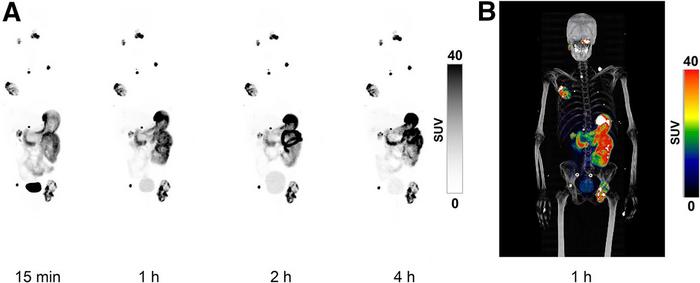Research supporting increased crop growth published in Proceedings of the National Academy of Sciences
NORMAN, OKLA. – An article describing research conducted by John Peters, Ph.D., chair of the Department of Chemistry and Biochemistry, Dodge Family College of Arts and Sciences at the University of Oklahoma, and fellow researchers, has been published in the journal Proceedings of the National Academy of Sciences. Credit: Photo provided by the University of […]

NORMAN, OKLA. – An article describing research conducted by John Peters, Ph.D., chair of the Department of Chemistry and Biochemistry, Dodge Family College of Arts and Sciences at the University of Oklahoma, and fellow researchers, has been published in the journal Proceedings of the National Academy of Sciences.

Credit: Photo provided by the University of Oklahoma
NORMAN, OKLA. – An article describing research conducted by John Peters, Ph.D., chair of the Department of Chemistry and Biochemistry, Dodge Family College of Arts and Sciences at the University of Oklahoma, and fellow researchers, has been published in the journal Proceedings of the National Academy of Sciences.
The article “Structural insights into redox signal transduction mechanisms in the control of nitrogen fixation by the NifLA system” explores the way bacteria regulate the expression of genes related to nitrogen fixation – the conversion of nitrogen in the air into ammonia that can help plants grow.
“Using small angle X-ray scattering and mass spectrometry-coupled surface labeling, we revealed how a protein can sense the levels of oxygen, nitrogen and energy in the (plant’s) cell and, in response, regulate the expression of genes that support nitrogen fixation,” Peters said.
NifA is a protein that turns on these genes, while NifL is a protein that controls NifA by changing its shape in response to signals from the cell. Understanding the structure of NifL and how it changes in response to signals from the cell can help researchers develop new ways to engineer bacteria and biofertilizers in the form of ammonia in soils that can enable crop plants to grow better. With nitrogen composing 78% of the atmosphere, this could lead to a significantly improved yield, especially in poor soils.
“We are excited to see this article published because it answers a lot of questions about the way NifL works and enables a new line of research,” Peters said. “It also illustrates how to obtain detailed structural information about proteins that are recalcitrant to more traditional methods for structure characterization.”
###
About This Project
The article, “Structural insights into redox signal transduction mechanisms in the control of nitrogen fixation by the NifLA system,” will be published July 21, 2023, in Proceedings of the National Academy of Sciences. DOI no. 10.1073/pnas.2302732120.
About the University of Oklahoma Office of the Vice President for Research and Partnerships
The University of Oklahoma is a leading research university classified by the Carnegie Foundation among the nation’s highest tier of research universities. Faculty, staff and students at OU are tackling global challenges and accelerating the delivery of practical solutions that impact society in direct and tangible ways through research and creative activities. OU researchers expand foundational knowledge while moving beyond traditional academic boundaries, collaborating across disciplines and globally with other research institutions as well as decision-makers and practitioners from industry, government and civil society to create and apply solutions for a better world. Find out more at ou.edu/research
About the University of Oklahoma
Founded in 1890, the University of Oklahoma is a public research university in Norman, Oklahoma. OU serves the state, region and nation’s educational, cultural, economic and healthcare needs. For more information, visit www.ou.edu.
Journal
Proceedings of the National Academy of Sciences
DOI
10.1073/pnas.2302732120
Article Title
Structural insights into redox signal transduction mechanisms in the control of nitrogen fixation by the NifLA system
Article Publication Date
17-Jul-2023
What's Your Reaction?

































